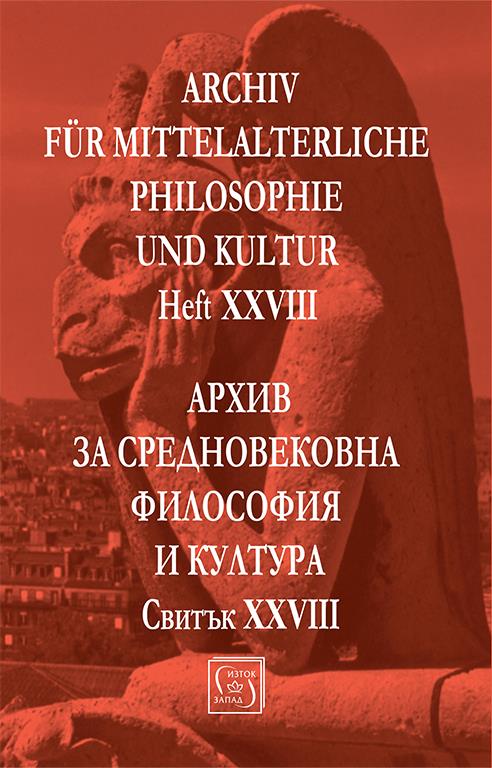Топоси на незнанието в диалектиките на Платон и Николай от Куза
The Topoi of Unknowing in the Dialectics of Plato and Nicholas of Cusa
Author(s): Vladimir PachemanovSubject(s): Philosophy, History of Philosophy, Metaphysics, Epistemology, Ancient Philosphy, Philosophy of Middle Ages
Published by: Издателство »Изток-Запад«
Keywords: Plato; Nicholas of Cusa; dialectics, negativity; knowledge; unknown; unknowable; process; contradiction; dialogue
Summary/Abstract: The following text is an attempt to trace the relationship between the dialectics of Plato and Nicholas of Cusa with their specific understanding of the importance of the process in which something becomes unknown. In Plato, we find the aforementioned elements in the dialogues in which Socrates helps explicate confusions and incompatibilities in the “certain” and “undoubtable” beliefs of the people with which he communicates and discusses, and for Nicholas of Cusa – in the specific impossibility to understand the nature of God and the importance of a proper conceptualization of this impossibility and “beyondness”. We argue that this process of “becoming-unknown” is a key feature of their respective philosophies and, more specifically, in their dialectical endeavours. This processuality of knowledge through the unknown (and sometimes unknowable) is a certain staple of dialectics which can be seen as one of its essential features in the philosophical tradition. It strives to show the positivity in the negativity in which the unknown presents itself – thus negating the idea of a clear-cut difference between positivity and negativity, but rather demonstrating them as complementary to one another, as crucial moments of the same process. We make an analysis of the ways in which their dialectics are similar and the aspects in which they differ, presenting a line of change within the “nature” of the dialectic. This can serve as an example of its transformations within the historical context of the age in which it is conceptualized or used, forming a certain philosophical tradition that leads to Hegel and beyond.
Journal: Архив за средновековна философия и култура
- Issue Year: 2022
- Issue No: 28
- Page Range: 180-204
- Page Count: 25
- Language: Bulgarian
- Content File-PDF

